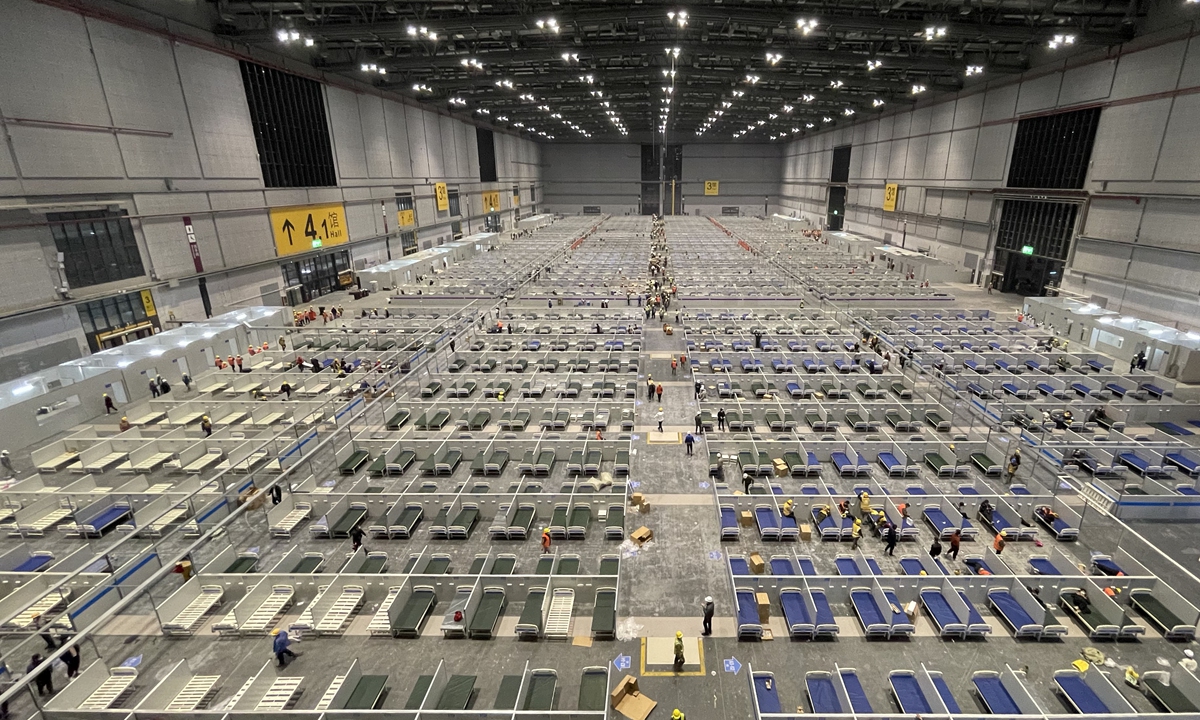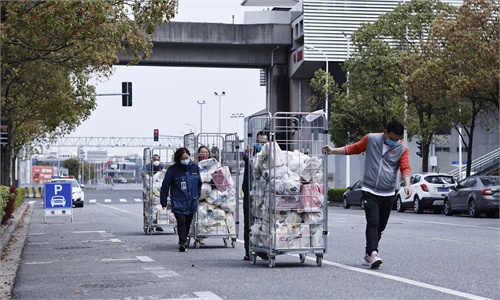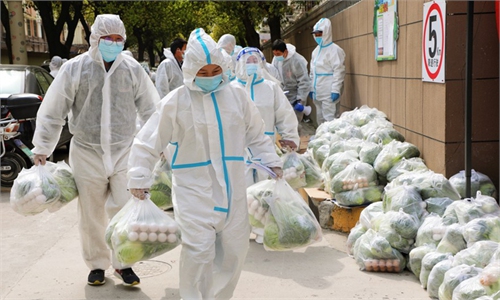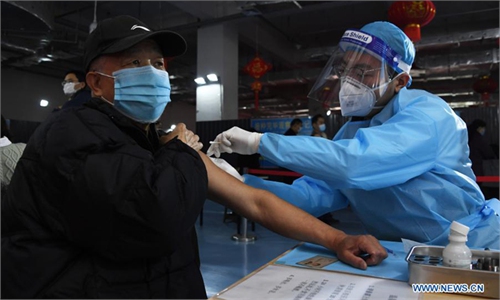
The largest makeshift hospital in Shanghai, renovated from National Convention & Exhibition Center (Shanghai), will be delivered on April 9, 2022 and is expected to provide up to 50,000 beds. Photo: Xinhua
Shanghai communities are improving their mechanisms and environments to welcome recovered COVID-19 patients back home amid public concerns over re-infection, virus transmission and discrimination against this group, after more than 23,000 COVID-19 patients were discharged from hospitals or released from medical observation on Monday, with the number surpassing that of newly infected persons in the city.
Shanghai on Monday registered 3,084 local COVID-19 cases and 17,332 local asymptomatic infections. On the same day, 1,211 confirmed COVID-19 patients and 22,075 asymptomatic carriers were discharged from hospitals or released from medical observation after recovery, Wu Qianyu, an official from the Shanghai health authority, said at Tuesday's press briefing.
With more people about to be discharged from hospitals or released from medical observation, there are also rising concerns over whether this group will be re-infected or if they still carry the virus. Some Western media also exaggerated divisions among Shanghai communities.
Wu Jinglei, director of the Shanghai Health Commission, said at a press briefing held in early April that the community should not discriminate against recovered COVID-19 patients. So far, there have been no reports indicating discharged persons are contagious, said Wu.
According to an official surnamed Ma from Minhang district, there are around eight COVID-19 patients discharged from hospitals who have returned to his community. These recovered patients will be required to further go through home quarantine for seven days, during which time they are not allowed to take mass nucleic acid tests together with other residents in the compound but will take nucleic acid or antigen tests after seven days at home, Ma told the Global Times on Tuesday.
A 41-year-old resident surnamed Zhao, who has been living in Shanghai for 12 years, faced some problems when her son was infected with COVID-19 in March. "My community didn't allow residents to enter or leave the community at that time. I was anxious as I didn't know where my son should live after being discharged from the hospital."
But luckily, her son returned home safely on March 29 after coordinating with the local communities in the Pudong New Area. Unfortunately, Zhao herself was also infected with the virus, with mild syndromes later, and she was sent to the Shanghai New International Expo Center makeshift hospital on April 6.
After nine days of treatment, she was discharged with about 20 other patients in her neighborhood on April 15. "The security guard in our community checked my nucleic acid test and discharge certification, and I returned home safely without any obstacles," Zhao said.
Zhao carried out three days of self-monitoring in an isolated room at home. "Compared with the experience in March, I think that communities have become more tolerant toward COVID-19 patients," Zhao noted.
The Shanghai Municipal Civil Affairs Bureau has clarified that all people discharged from hospitals or released from medical observation will be transferred back home under closed-loop management, and special working groups are required to be in charge of the transfers.
Neighborhood committees are responsible for counselling and explanations to ensure that there are no obstacles.
An official surnamed Zhou from a neighborhood committee in the Xuhui district told the Global Times on Tuesday that some recovered COVID-19 patients have returned and stayed at home for about one month in the community.
"Recovered patients are cautious and don't have too much contact with their neighbors," Zhou said.



